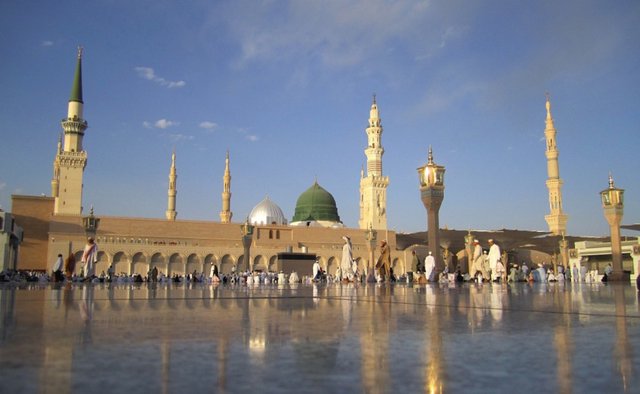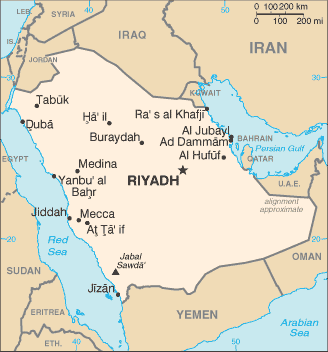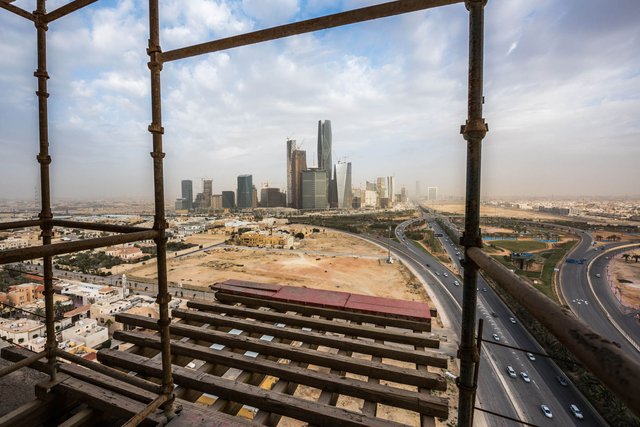Saudi Arabia (no tourists allowed)

The Kingdom of Saudi Arabia is the largest Arab country on the Arabian Peninsula. Bordering Jordan, Iraq, Bahrain, Kuwait, Qatar, the United Arab Emirates, Oman, and Yemen, Saudi Arabia has played an important strategic role in the Middle East. Islam’s two holiest cities, Mecca and Medina, are located in Saudi Arabia.
Saudi Arabia is divided into 13 provinces, and, until the 1960s, most of the population was nomadic. Most Saudis are ethnically Arab, although some are of mixed ethnic origins. Many Arabs from neighboring countries work and live in Saudi Arabia but are not citizens. Of a population numbering approximately 26 million, 7 million are foreign citizens, mostly from South Asia. There are also a significant number of Westerners living in Saudi Arabia. All citizens are required to be Muslims.

Saudi Arabia is a monarchy ruled by King Abdullah bin Abd al-Aziz al-Saud, who assumed the throne upon the death of his half brother Fahd bin Abd al-Aziz al-Saud in 2005. The 1992 Basic Law established the system of government and the rights of citizens and provided for rule according to sharia, which is Islamic law. The Qu’ran is the constitution of the land, and there is no separation of church and state.
The country held its first municipal elections in 2005. The king is an absolute monarch whose powers are tempered only by the sharia and other Saudi traditions. The king consults with the Majlis al-Shura, or Consultative Council; the Council of Ministers; the ulema (religious leaders); and other senior members of the Saudi royal family. The Council of Ministers approves legislation, which must be compatible with sharia.
While the Basic Law provides for an independent judiciary, the king serves as the highest court. The Saudi judicial system imposes amputations of hands and feet for serious robbery, floggings for lesser crimes such as sexual deviance and drunkenness, and beheadings for more serious crimes. Religious police enforce strict social rules.
The Saudi economy is based on petroleum and gas resources, and the government controls most of the revenues. Approximately 40 percent of the economy is privatized. Saudi Arabia contains nearly 25 percent of the world’s oil reserves and is the largest exporter of petroleum in the world. Saudi Arabia has also played a central role in the Organization of Petroleum Exporting Countries (OPEC).
Oil production increased during the reign of King Faisal ibn Abd al-Aziz; Faisal became king following the abdication of his inept half brother King Saud ibn Abd al-Aziz. He introduced various reforms and attempted to modernize the kingdom. With the support of his wife, Queen Iffat, Faisal introduced education for females.
A devout Muslim, Faisal also worked to increase the Islamic political identity in the Arab world. After the 1967 Arab-Israeli War, Saudi Arabia’s strategic importance increased, and Faisal built up the nation’s military capabilities. During the 1973 Arab-Israeli War, Faisal moved to mix oil and politics by withdrawing Saudi oil from nations that supported Israel.
He also advocated the return of Jerusalem to Muslim rule. In 1975 Faisal was assassinated by a nephew, and his half brother, King Khaled ibn Abd al-Aziz, known for his pro-United States stance, assumed the throne. Following his death in 1982, Fahd ibn Abd al-Aziz became king.
The Saudi government supported the growth of the private sector to decrease economic dependence on oil and to increase employment opportunities. In the 1990s, water shortages hampered efforts toward agricultural self-sufficiency and the per capita income decreased from almost $25,000 in the 1980s to about $8,000 by 2000. In order to increase employment for its citizens, the government attempted to Saudize the economy by replacing foreign labor with Saudi workers.
Counterterrorism efforts dominated Saudi politics in the early 21st century. After 15 Saudi hijackers perpetrated the September 11, 2001, terrorist attacks in the United States, the Saudi government intensified its antiterrorism campaign.
However, the future of the authoritarian monarchy remained uncertain as the Saudi government attempted to combine sweeping programs of modernization with the continuation of puritanical ways of life, in a country where traditionalists dominate society.

Congratulations @supertoughfish! You have completed some achievement on Steemit and have been rewarded with new badge(s) :
Click on any badge to view your own Board of Honnor on SteemitBoard.
For more information about SteemitBoard, click here
If you no longer want to receive notifications, reply to this comment with the word
STOPBy upvoting this notification, you can help all Steemit users. Learn how here!
Thanks for this information! How does the welfare work in Saudi Arabia? For poor people?